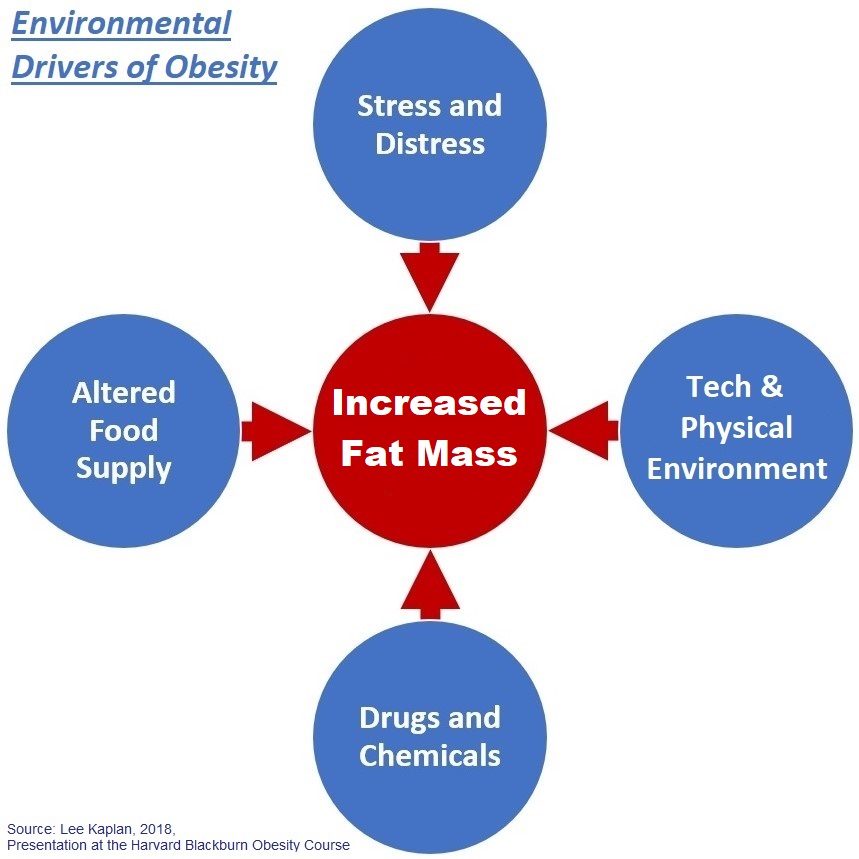
Would You Like Phthalates with That?
A preliminary analysis by a team of scientists at four major research institutions finds disturbing levels of phthalates in a sample of fast food. Lead author Lariah Edwards told WebMD that she wasn’t especially surprised to find this, because the food sold by fast food chains is so highly processed, packaged, and handled. Every step along the way is an opportunity for these chemicals to find their way into the food. But it’s a big concern because fast food can be a significant part of the diet for many people and these chemicals may cause health problems. Edwards explains:
“Phthalates are known to disrupt hormones in humans, and are linked to a long list of health problems, such as reproductive and children’s neurodevelopmental effects.”
In addition, phthalates have a clear link to obesity risk.
Endocrine Disrupting Chemicals (EDCs)
 For decades, as the prevalence of obesity rose, the prescription remained constant. Urge people to move more and eat less. But the causes of obesity are not so simple as bad eating habits and sedentary lives. In fact, our bodies are quite good at regulating how they store energy as fat. But many factors can disrupt this normal body function.
For decades, as the prevalence of obesity rose, the prescription remained constant. Urge people to move more and eat less. But the causes of obesity are not so simple as bad eating habits and sedentary lives. In fact, our bodies are quite good at regulating how they store energy as fat. But many factors can disrupt this normal body function.
The most common factor to get attention is the food supply. Technology and physical environment can play a role, too. So can stress and distress. However, drugs and chemicals, including EDCs, can have just as much of an effect as these other factors to increase the set point for the fat mass our bodies store.
In a recent review article, Ronald Biemann, Matthias Blüher, and Berend Isermann explained:
“The etiology of obesity is multifactorial and depends on gene–environment interactions. With more than 85,000 registered chemicals, most of which are poorly studied, current estimates have identified approximately 1,000 chemicals that meet the criteria of an EDC. Identifying EDCs among all of the chemicals used and released worldwide is a major challenge, and it is likely that we are currently assessing only the ‘tip of the iceberg.’”
Do We Want This in Our Food?
Make no mistake. This is not an easy problem to solve. These EDCs, such as phthalates, are numerous and ubiquitous. Chemicals go through screening for acute toxicity and causing cancer. But if something makes a creature gain a little weight over time, it can escape detection. The historical worry has been chemicals that would cause animals to wither and die.
That was then. Now we have inherited a world full of features, including chemicals, that make us fatter. The harm to health is indisputable. So no, we don’t want phthalates with our food. We’ll thank regulators and industry to pay attention and take them out.
Click here for the study, here, here, here, and here for further perspective. For the excellent review by Biemann et al, click here.
Small Fries, photograph © Mr. Blue MauMau / Wikimedia Commons
Subscribe by email to follow the accumulating evidence and observations that shape our view of health, obesity, and policy.
November 10, 2021

November 10, 2021 at 7:41 am, Andrew Brown said:
Most chemicals are used for a reason. Why are they there? What function do they serve? What are the toxicological properties of the alternatives or replacements? There are past examples of fear of a chemical or process that pressured change or replacement, just to move to something with even less well known. “The devil you know beats the devil you don’t.” (…sometimes!)
November 10, 2021 at 8:32 am, Ted said:
Yes. Sometimes.